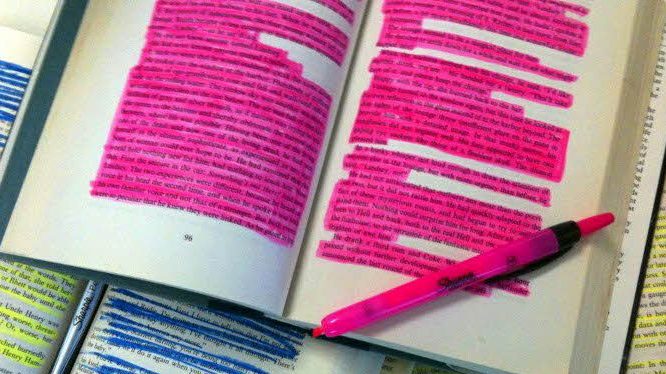The Bar Exam is almost here, so it is extremely important that you are making the most of the time you have left. Because we at Lean Sheets are all about increasing the effectiveness and efficiency of your bar review, we thought it would be helpful to share several bar exam strategies that you should AVOID while you prepare for the upcoming bar exam.
So, without further ado, here is our list of the top 7 bar exam strategies to steer clear of if you want to maximize your study efforts.
1. Allocating the same amount of time to the state subjects as you do the MBE subjects.
It’s simple math. For a vast majority of states, the MBE subjects are worth twice as much as the state specific subjects. They are tested both on the MBE and on the essay portion of the exam. Therefore, it only makes sense that you should spend more time learning and mastering the MBE subjects. Don’t freak out and spend a week on Wills because you don’t understand the subtleties of ademption! Use your time wisely and focus on the most valuable and highly tested subjects.
2. Writing out more than one full Performance Test a day.
Even once a day is too much! The performance test was designed to test your ability to think and write like a lawyer on a small, but time pressured task. While we don’t know what kind of task the examiners will bestow upon us come exam day, we do know the fundamental skills we need to employ: 1) Follow directions explicitly; 2) determine the relevant facts; 3) determine the relevant case law in the library; 4) organize our argument/analysis; and 5) write in the appropriate tone. Once you’ve mastered those skills, it’s time to move on. There is no sense trying to simulate full performance tests for each possible task that may come up. Your time can and should be spent working on practice essay questions and MBEs.
3. Revising, re-organizing, condensing, and/or color coordinating your notes.
Remember that girl in your first year contracts course that auctioned off her class outline at Sotheby’s after law school? Well, guess what. All that time spent creating the perfect outline probably didn’t help her get a higher grade on the final. Although it may feel like you are being productive by working furiously on your masterpiece outlines, it is just busy work. Once again, you should be spending that time learning the law and practicing essays and MBEs.
4. Only reading the MBE answer explanations for those questions you get wrong.
This should be a fairly obvious one, but it is tempting to assume that our correct answers are directly related to our knowledge of the law. Unfortunately, sometimes those correct answers were actually based on an incorrect application of the law, or maybe even just a lucky guess! So take the time to review all the explanations, and be sure you understand why you got an answer right or wrong.
5. Spending the majority of your time reading long outlines or review books.
At this stage of the game, your review of the substantive law should be based upon your condensed notes or outlines. Long outlines are fine to study with 2 or more months to spare, but with only a few weeks left, you won’t have time to do a review of all the subjects. And because the majority of your remaining time should be spent practicing exam questions, you can’t waste time relying on long outlines or review books.
6. Listening to/watching lectures to learn or re-learn substantive law
Look. We don’t want to diminish the value of a good lecture, especially one riddled with corny legal puns, but the relative value of listening to a lecture versus learning the material from your outlines or notes is very low. First, you can only learn as fast as the lecturer speaks. By learning the material through reading, you can absorb information much more rapidly. Second, lecturers tend to include a lot of information (and “funny” anecdotes) that are not going to help you on the exam. So, why sit through an hour-long lecture when you only get about 30 minutes of relevant material? Lastly, listening to lectures is an incredibly passive learning experience. Although you are “listening”, the mind tends to lose focus, and we often need to rewind and replay certain parts because we’ve missed something. The only thing less efficient than listening to a lecture is listening to it again!
7. Sacrificing sleep for extra studying
This is not so much a study “strategy”, but it is without a doubt the most important advice we can give. You may think the extra couple hours of study time each day is worth losing some shut-eye. But by getting insufficient sleep, your ability to process and retain information is greatly reduced. Nine hours of studying with proper rest will yield greater results than a sleep deprived, 12 hour day of review. This may not be ground breaking news for anyone, but it is certainly an important reminder for those of you who may be pushing yourself too hard.
Well, that's all for now. Check back soon for more bar exam strategies.
Good Luck!
Team Lean Sheets


